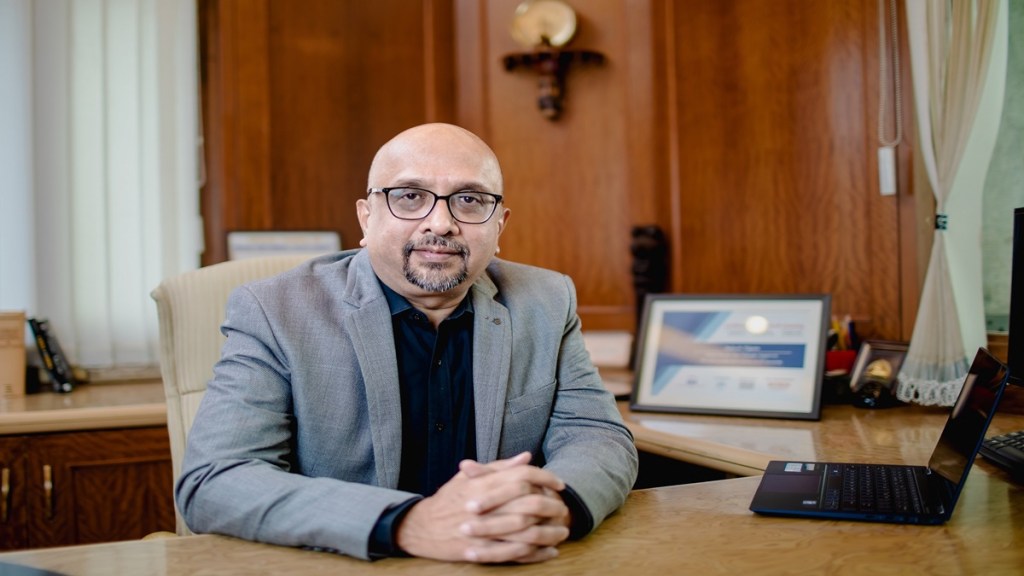The advancement in digital technologies has led to a monumental shift in the music business, bringing about new challenges in copyright infringement and piracy. With the concept of fair trade in music gaining momentum, there is now a need to make consumers aware of it, empowering them to influence the way companies do business and the choices they can make as consumers. In such a scenario, copyright societies like the Indian Performing Right Society (IPRS) are playing a vital role in changing the mindset of users and spurring growth in the music creation market. Rakesh Nigam, CEO of IPRS, speaks with Vaishali Dar on the post-Covid strategies and learnings for the music industry. Edited excerpts:
Has the rapid growth of online streaming impacted the music industry?
Rapid digitalisation has created huge opportunities and generated multiple options for music makers and consumers alike. Songwriters, composers and music publishers saw a healthy rise in digital royalties. However, there is more room for growth. There’s a constant need to improve the data management that helps drive collections. While the digital boom has provided music creators access to an audience beyond geographies, it has also brought in new challenges in copyright infringement and piracy. No content can be assumed to be ‘copyright-free’ on the Internet unless the owner specifically makes it available for free use. Given the rising audio consumption in the OTT space, all avenues playing music, including the popular homegrown streaming platforms, must comply with licensing norms and pay the rightful dues to those deserving. But 82% of our collections are from digital. The IPRS continues to face licensing challenges, with multiple users, including homegrown OTT players, major broadcasters and radio stations, refusing to pay for the use of music. Moreover, insufficient data provided by the Indian broadcast industry triggers inefficiencies blocking the collection and eventually the distribution of royalties.
Do you plan to increase licensing footprint and expand global reach to new territories where Indian music is popular?
We are a non-profit society working to further the interest of authors, composers and music publishers as well as work to honour their commitment towards fair pay and fair play of music. We adopt a 360-degree approach to motivate players including event organisers, retail chains, pubs, restaurants, hotels, all public places playing music, major broadcasters, radio stations, digital service providers and telecom operators to get a licence to legally play music.
The IPRS already has reciprocal agreements with our sister societies in countries across the globe, resulting in the expansion of the IPRS licensing footprint. We can collect royalties for Indian music being played in territories outside India and pay it back to our members. Currently, the IPRS has agreements with 59 societies covering multiple countries where Indian music is popular.
Any changes planned to introduce more live acts and events in the future?
We are trying to motivate people to get licences for the music they want to play in public. We expect a growth in revenues from live music acts and events, which were at a standstill during the pandemic. Malls are now willing to spend money and take music licences. IPRS, being a registered as a royalty collection society, is under obligation to create and publish a tariff scheme that is approved by its general body. Also, the tariff structure is constructed keeping in mind all kinds of establishments. The fees vary as per size and music consumption. A nightclub, where music is of utmost importance, will attract a higher tariff than a shop. Thus, as new revenue streams for members, we are accelerating efforts to increase the income from sources beyond digital, covering public performance, television and broadcasting, etc, to a 30-40% share of our total revenue.
What can be done to protect the rights of composers, songwriters and publishers?
The concept of fair trade in music—and making consumers aware of it, empowering them to influence the way companies do business and the choices they can make as consumers—is new. Hence, copyright societies like IPRS play a vital role in changing the mindset of users. Advancements in digital technologies have led to monumental shifts in most aspects of the music business. It has revolutionised the way people consume music and has spurred growth and innovation in music creation, which is, after all, the point of art.

